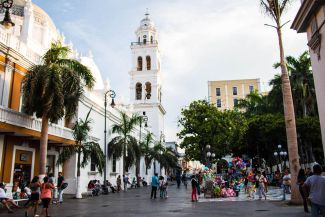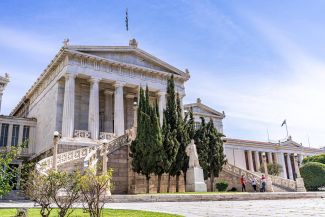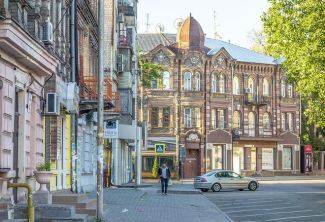
International Baccalaureate (IB) is a prestigious international education system for students aged 3 to 19, available in more than 150 countries. It offers four programs: the Primary Years Programme (PYP), Middle Years Programme (MYP), Diploma Programme (DP), and Career-related Programme (CP). All of them follow the same high academic standards.
IB diplomas and certificates are valued worldwide for their strong interdisciplinary training, focus on critical thinking, and recognition by leading universities. Today, IB documents are accepted in over 110 countries, opening doors to top universities and career opportunities.
However, international recognition does not remove the need for formal procedures. If you plan to use your IB diploma abroad — for example, when applying to a university or for a job — in many cases you will need an apostille or consular legalization.. In practice, this applies mainly to final documents from the DP and CP programs, as these play the most important role in academic and professional careers.
IB Programmes
Primary Years Programme (PYP) — for children aged 3 to 12. It develops curiosity, critical thinking, and cultural awareness. This programme does not issue a final diploma, so legalization of documents is not required.
Middle Years Programme (MYP) — for students aged 11 to 16. It provides a strong academic foundation and teaches how to apply theory in real-life situations. Students may receive a certificate at the end, but it rarely needs legalization since it is not used as a main admission document.
Diploma Programme (DP) — for students aged 16 to 19. This is an advanced academic programme that leads to the IB Diploma, which is the key document for university admission. This diploma most often requires an apostille or consular legalization.
Career-related Programme (CP) — also for students aged 16 to 19. It combines academic studies with career-focused learning. Graduates receive the Career-related Programme Certificate, which may need legalization if it is used for university admission or employment abroad.
Legalization of IB Diplomas
Legalization of an International Baccalaureate (IB) diploma is the process of officially confirming the authenticity of the document. This includes verifying the signature, seal, and format so that the diploma is recognized by a university, government authority, or another institution. In the IB system this process is sometimes referred to as homologation. While most graduates do not need legalization, in some cases — such as university admission, compliance with national regulations, or proof of qualifications abroad — it becomes mandatory.
In certain countries, IB certificates are not legally valid until they have been certified in Switzerland, where the International Baccalaureate Foundation is registered, and/or by the relevant embassy or consulate.
In practice, legalization is most often required for documents from the Diploma Programme (DP) and Career-related Programme (CP), as these confirm full completion of IB requirements and are used for university admission.
DP graduates receive two documents: the IB Diploma (or a bilingual diploma for candidates who studied in two languages), which is the main qualification, and the DP Results Certificate listing subjects, individual grades, and the overall score. Students who complete only certain DP courses, or who do not meet the requirements for the full diploma, receive a Course Results document with subject grades but no overall score.
CP graduates who meet all requirements receive the IB Career-related Programme Certificate (or a bilingual version) along with a Course Results document, which shows subject grades and confirmation of the programme’s key elements. The exact list of documents that must be legalized should always be checked with the receiving institution.
The need for legalization is determined by the rules of the country where the documents will be used, not by the student’s country of residence or citizenship. Countries where legalization is frequently required include Brazil, Bulgaria, Cyprus, Israel, Egypt, Greece, Italy, Mexico, Romania, Russia, Saudi Arabia, Taiwan, Ukraine, and the United Arab Emirates. Requirements can vary not only from country to country but even between universities in the same country. For this reason, students are strongly advised to confirm in advance whether the university or institution requires legalization of the results certificate only, or both the certificate and the diploma itself.
Legalization in Italy
In Italy, some universities require not only legalization but also a Dichiarazione di Valore (DoV) — a declaration confirming the academic value of the diploma. Universities that cooperate with schools included in the official list recognized by the Italian Ministry of Education usually waive the DoV requirement. However, the list published on the Ministry of Universities and Research website is often incomplete or outdated.
If the request for legalization in Italy comes from a school not included in this list, the IB contacts the programme coordinator to confirm whether a DoV is necessary and to explain the next steps. To obtain a DoV, the IB requires: a legalized copy of the results document (if the request is submitted after grades are released), a copy of the student’s ID, proof of enrollment or registration at the university (or a self-declaration for Italian citizens), evidence that the university requires the DoV.
IB may also assist in cases where a DoV is needed for employment or business purposes, but this service involves an additional fee. If a graduate has not received an IB Diploma but still needs legalization for Italy, it may be possible to certify the DP Course Results document. However, in such cases, the Italian consulate will not issue a DoV. Some universities may accept an alternative document — Statement of Comparability, issued by the organization CIMEA, instead of the DoV.
Legalization in India
In India, traditional legalization is usually not required. Instead, universities often ask for a Migration Certificate. This document confirms that the student took IB examinations in a specific session and that the IB organization has no objection to the student enrolling at an Indian university or taking exams from other education boards.
Before results are published the Migration Certificate can be requested by the school’s IB coordinator through the IBIS system, which automatically initiates the process. After results are published students must submit their own request for transcripts and/or the Migration Certificate through the online service rrs.ibo.org. In all cases, an official fee applies.
It is recommended to submit requests for legalization during the study period through the school coordinator — by 15 June for the May examination session and by 15 December for the November session. Since IB only accepts requests from schools, students who know they will need legalized documents for admission should inform their coordinator in advance. If exams are retaken, a new request must be made.
Graduates who apply more than six months after results are released can request legalization directly through rrs.ibo.org, providing their full name, date of birth, school name, and the country of the university. A fixed fee is charged for each document, regardless of its type.
IB document legalization process
For countries that are members of the 1961 Hague Convention, it is enough to place an apostille. The apostille replaces all other legalization steps, and the document is automatically recognized in the destination country.
However, many countries where IB graduates apply (for example, the UAE, Egypt, Vietnam, Qatar, Turkmenistan) are not part of the Convention. In these cases, an apostille has no legal effect, and full consular legalization is required. This process involves several stages: notarization of copies, confirmation at the cantonal administration, certification at the Swiss Federal Chancellery, and finally, legalization at the destination country’s consulate.
Legalization of IB diplomas in Switzerland and their consular authentication follow these steps:
1. Preparation of documents
The client provides: the original diploma and transcript (each legalized as separate documents), a copy of the passport, and full residential address. These are needed for notarization. Documents are sent to our office in Germany (Schmidt & Schmidt OHG, Bahnhofstrasse 22a, 94032 Passau).
2. Notarization in Switzerland
Certified copies of the educational documents are made. This stage usually takes 1–3 business days (excluding delivery).
3. Verification at the cantonal level
The notary’s signature is confirmed by the local cantonal administration.
4. Certification at the Swiss Federal Chancellery (Bern)
After cantonal verification, the documents are sent to the Bundeskanzlei in Bern.
5. Consular legalization
The documents are submitted to the consulate of the destination country. Each country has its own requirements, fees, and timelines. Payment is made in the local currency, so the total cost depends on the exchange rate.
6. Delivery of documents
Within Europe, we send documents by registered mail; for international deliveries, we use DHL.
Processing times depend entirely on government bodies and consulates and cannot be expedited. For countries outside the Hague Convention, costs and procedures are calculated individually — there are over 100 possible legalization scenarios.
What is an apostille?
What is an apostille? Why do I need an apostille? How do I get an apostille? - Our video will explain everything you need to know about the apostille. If you have a document that needs to be certified with an apostille for use abroad, Schmidt and Schmidt will assist you! We provide apostille services in more than 100 countries worldwide.





